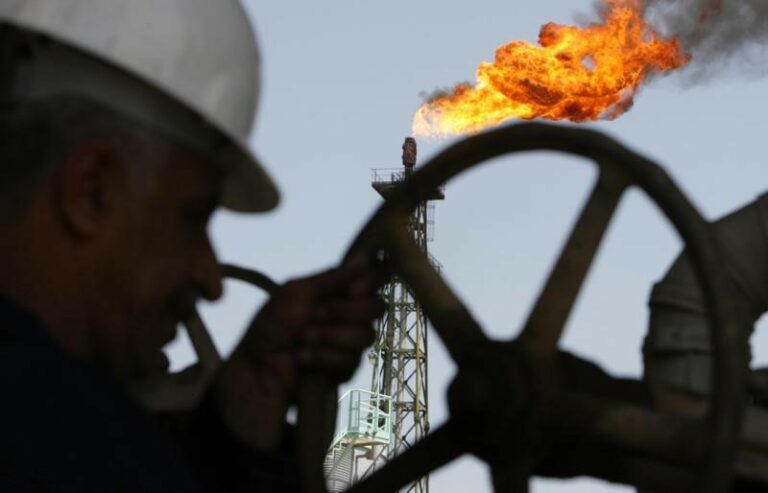© Reuters.
Investing.com — Oil prices edged higher Friday, on course for weekly gains on the back of continued Middle East tensions and oil output disruptions caused by extreme winter weather in the U.S., the world’s biggest producer.
By 09:05 ET (14.05 GMT), the futures traded 0.1% higher at $74.05 a barrel and the contract climbed 0.1% to $79.21 a barrel.
Both benchmarks remain on course for weekly gains of over 1%.
Crude set for weekly gains
The crude market is on course to register gains this week as the fraught situation in the Middle East means many companies continue to divert cargoes around Africa, adding to journey times and costs.
U.S.-led forces continued to clash with the Iran-backed Houthi group in the Red Sea, while Iran and Pakistan have also appeared to open up a new conflict, pointing to further instability in the oil-rich region.
Prices were also supported by an unexpected drop in U.S. crude inventories, which also came as severe cold weather knocked off about 40% of oil output in North Dakota. But limited travel conditions spurred a sustained, outsized build in oil product inventories.
IEA lifts 2024 demand growth forecast
Sentiment has also been boosted by bullish monthly reports from both the International Energy Agency and the Organization of Petroleum Exporting Countries during the week.
The IEA raised its 2024 oil demand growth forecast on Thursday, with the agency looking for an economic recovery in China and an eventual decrease in interest rates.
Global growth remains weak
That said, traders remains wary after weak U.K. retail sales reminded the group that economic growth, and thus demand for energy, remains fragile in many parts of the globe.
U.K. retail sales slumped 3.2% on the month in December, the biggest drop for almost three years, according to data released earlier Friday, raising the risk that this economy entered recession in the fourth quarter.
This followed weaker than expected growth data from top importer China in the fourth quarter, released earlier in the week, indicating sustained economic weakness in the world’s largest oil importer.
(Ambar Warrick contributed to this article.)


